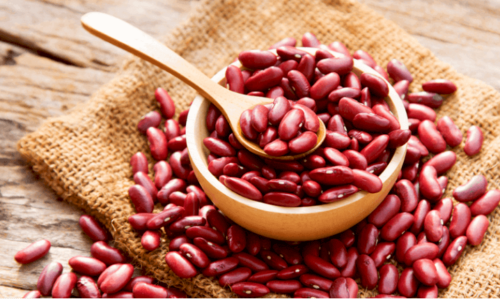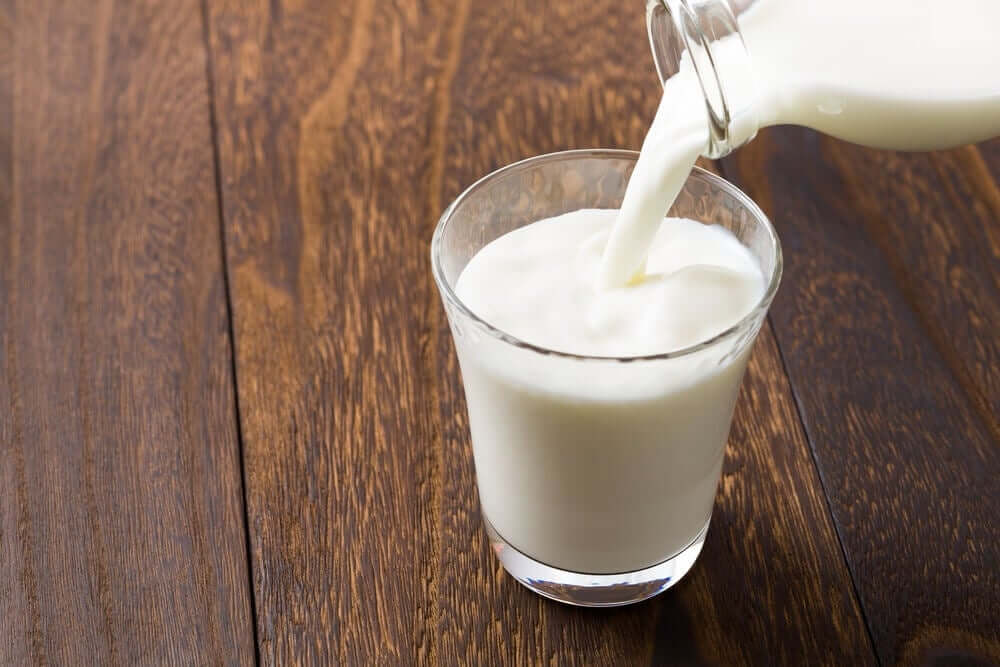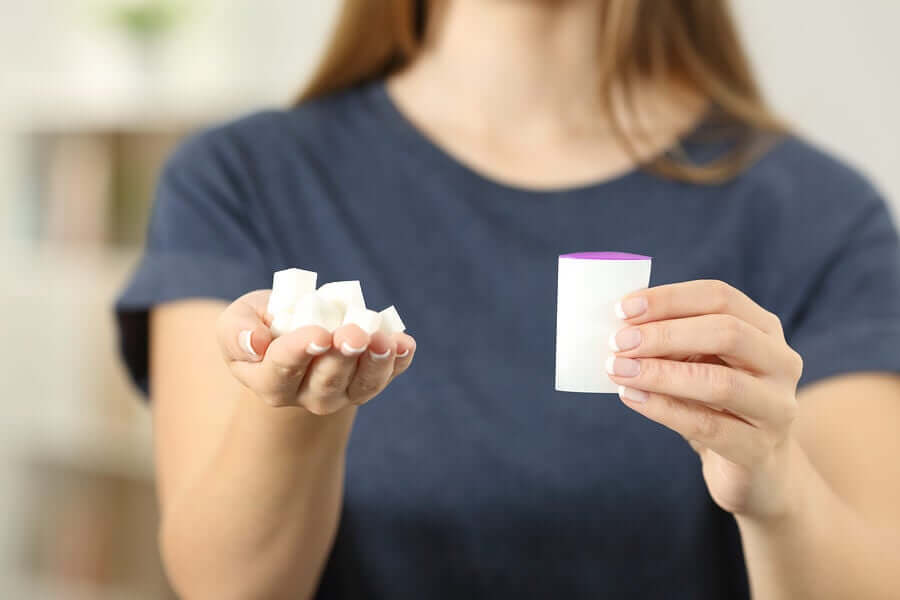6 Foods to Avoid When You Have Diarrhea


Reviewed and approved by the doctor Mario Benedetti Arzuza
Certain foods can worsen diarrhea, a digestive problem caused by many things, due to their composition. For example, some irritating ones won’t only worsen it but keep you sick. Thus, opt for light meals to reduce complications.
Diarrhea occurs when stools are watery and loose, and bowel movements occur three or more times a day. In most cases it resolves itself without problems, but you might end up dehydrated and exhausted.
As a result, anything you eat while you have diarrhea can be good or bad. So, which ones should you not eat? Continue reading to find out.
Foods to avoid when you have diarrhea
According to an article in the International Foundation for Functional Gastrointestinal Disorders (IFFGD), you can control most cases of diarrhea by adjusting your diet and lifestyle. While it’s important to keep an eye on your symptoms, diarrhea isn’t usually a sign of something serious.
Therefore, as far as diet’s concerned, it’s enough to have a lighter diet for the digestive system that also provides the nutrients that are lost due to this condition. Also, it’s better to avoid some foods that are heavy and can worsen the symptom. Let’s see in detail what they are in the following article.
1. Foods that cause gas often worsen diarrhea
The first group of foods that you should avoid when you have diarrhea are those that cause gas. According to a publication in Gastroenterology & Hepatology, this uncomfortable symptom may be manifest as bloating, abdominal pain, halitosis, nausea, and intestinal disturbances.
Thus, exclude the following from your diet if you have diarrhea:
- Beans
- Broccoli
- Cauliflower
- Onions
- Corn
- Leafy greens
- Apricots
- Plums
- Raisins
- Dried fruit
In turn, pumpkin, squash, and carrot puree are recommended, just peel them and remove the seeds. Fruits such as ripe banana, apple, or peach are also good to eat when you have diarrhea.

Read about the Five Habits that Can Worsen Gastritis
2. Fats, fried foods, and sugars
Excessive consumption of foods rich in fats and sugars contributes to the onset of diarrhea. Moreover, once this symptom is present, it can worsen if they continue to be ingested. As detailed in a publication in Harvard Health, both fats and sugars accelerate intestinal contractions and tend to provoke reactions at the digestive level.
“When the body doesn’t absorb fatty foods as it should, they go to the colon, where they’re broken down to fatty acids, causing it to secrete fluid and trigger diarrhea,” says Dr. Greenberger in the above article.
With that in mind, it’s important to avoid these foods at all costs:
- Sausage
- Fast food
- Fatty meats
- Sauces
- Commercial dressings
Instead, substitute these foods for lean proteins that are cooked or boiled. The best options are:
- Broths
- Soups
- Chicken
- Veal
- Turkey
3. Milk and its derivatives
The consumption of dairy products, except yogurt, can be heavy for digestion during episodes of diarrhea. In fact, it’s best to skip them until about 48 hours after your evacuations normalize. This reduces the risk of worsening or recurrence of the discomfort, according to this study published in the medical journal Paediatrics and Child Health.
The reason why you should avoid milk is that it requires lactase in order to be digested. The problem is that when you have diarrhea, or after, the lactase in your stomach decreases and leads to symptoms like:
- Gas
- Bloating
- Gastrointestinal discomfort
- Diarrhea
It might be okay for you to have lactose-free milk, but your doctor should be the one to decide whether or not you should include it in your diet. It really depends on the severity of your diarrhea.
The only dairy product that you can eat is yogurt. Its probiotics help maintain the good gut bacteria and help get rid of diarrhea.

Read more The Difference Between Milk Allergy and Lactose Intolerance
4. Coffee, soda, and alcohol
All three of these beverages are gastrointestinal irritants, as reported by the International Foundation for Functional Gastrointestinal Disorders (IFFGD). Because of this, they can increase discomfort and diarrhea itself. Thus, it’s best to exclude them from the diet during diarrhea.
- You can substitute coffee with tea. The best options are chamomile, mint, and peppermint teas.
- Skip the soda and drink water or fruity infusions instead.
- The effects of alcohol create the perfect conditions for diarrhea. Too much of it can speed up your digestion and intensify the muscle contractions responsible for bowel movements.
- Ideally, replace fluids with oral rehydration solutions in the event of severe diarrhea.
5. Spicy foods
These irritate the digestive system and can worsen diarrhea, especially if they’re not part of your usual diet. Seasonings like curry, pepper, ground paprika, and mustard are often linked to increased gas, bloating, and burning.
6. Artificial sweeteners
Artificial sweeteners are used as an alternative to conventional sugar. They can be aspartame, saccharin, sugar alcohols, and other options. These substances, while safe for most, tend to alter the lower intestinal tract.
According to a publication in the Journal of Pharmacology & Pharmacotherapeutics, their excessive intake can trigger diarrhea. Doctors even advise avoiding their consumption as part of the treatment for irritable bowel syndrome.

Skip the fiber when you have diarrhea
Dietary fiber is a component that plays a central role in the well-being of the digestive system. However, there are many types and they can play different roles in relation to this pathology.
In general, during an episode of diarrhea, it’s recommended not to overdo it and to give priority to foods that are low in fiber. This isn’t only due to the ability of insoluble fiber to increase stool bulk but also to the objective of choosing a soft and easily digestible diet.
For this reason, avoid whole wheat flour and its derivatives, red fruits, dried fruits, vegetables like broccoli, cauliflower, leafy greens, and seeds and legumes.
Some foods can cure diarrhea as long as you eat them consistently
Sticking to the proper diet when you have diarrhea is important to improve symptoms. And although you should avoid some foods, experts point out that whenever possible, you must continue to eat. Even your usual diet is better than not eating at all.
One of the objectives is to prevent nutritional consequences. In addition, continuing to eat has an impact on the condition and helps with the renewal and absorption functions of the intestinal mucosa.
Likewise, the diet shouldn’t diminish the intake of liquids, which should be abundant to replace those lost through diarrhea. In fact, proper hydration is essential and even more important than eating.
Tips for food preparation
Whether you have diarrhea or not, food prep is important for your gastrointestinal health. Good food prep involves the following:
- Your fruits and vegetables have been washed and kept away from contaminating agents. Make sure your meat hasn’t been contaminated by rotten meats.
- It’s important for your food to be cooked. When you are experiencing diarrhea, and a week after it, be sure that most of the foods you are eating are fully cooked without fats. Fruit is the only exception, although boiled apples and pears are quite tasty.
Other recommendations for your stomach health:
- Wash your hands before preparing and eating your foods.
- Disinfect any surface where you prepare your foods (table, cutting board, etc.).
- Avoid freezing and thawing foods more than twice since the changes in temperature cause decomposition.
It’s important to consult a doctor
Dietary adjustments may be enough to improve diarrhea in a short time. However, if the symptom is severe or persistent, it’s best to consult a physician. The professional, after making the appropriate tests, will determine if other treatments are necessary.
All cited sources were thoroughly reviewed by our team to ensure their quality, reliability, currency, and validity. The bibliography of this article was considered reliable and of academic or scientific accuracy.
- Harvard Health Publishing. Harvard Medical School. (s.f). Is something in your diet causing diarrhea? Consultado el 2 de diciembre de 2023. https://www.health.harvard.edu/diseases-and-conditions/is-something-in-your-diet-causing-diarrhea
- Machado de Ponte, L., Noguera Brizuela, D., Pierre Álvarez, R., Vásquez Fernández, M., & Zurita Rodríguez, E. (2010). Alimentación del paciente con diarrea aguda. Archivos Venezolanos de Puericultura y Pediatría. 73(1). http://ve.scielo.org/scielo.php?script=sci_arttext&pid=S0004-06492010000100008
- Mayo Clinic. (22 de agosto de 2023). Diarrea. Consultado el 2 de diciembre de 2023. https://www.mayoclinic.org/es/diseases-conditions/diarrhea/diagnosis-treatment/drc-20352246
- Mayo Clinic. (21 de marzo de 2023). Edulcorantes artificiales y otros sustitutos del azúcar. Consultado el 2 de diciembre de 2023. https://www.mayoclinic.org/es/healthy-lifestyle/nutrition-and-healthy-eating/in-depth/artificial-sweeteners/art-20046936?reDate=30112023
- Medline Plus. Biblioteca Nacional de Medicina de Estados Unidos. (5 de diciembre de 2021). Cuando usted tiene diarrea: Medline Plus enciclopedia médica. Consultado el 2 de diciembre de 2023. https://medlineplus.gov/spanish/ency/patientinstructions/000121.htm
- National Institute of Diabetes and Digestive and Kidney Diseases. (Noviembre de 2016). Alimentación, dieta y nutrición para la diarrea. Consultado el 2 de diciembre de 2023. https://www.niddk.nih.gov/health-information/informacion-de-la-salud/enfermedades-digestivas/diarrea/alimentos-dietas-nutricion
- National Institutes of Health. Office of Dietary Supplement. (5 de marzo de 2019). Potasio. Consultado el 2 de diciembre de 2023. https://ods.od.nih.gov/factsheets/Potassium-DatosEnEspanol/
- Nemeth, V., Zulfiqar, H., &. Pfleghaar, N. (21 de noviembre de 2022). Diarrhea. StatPearls. Consultado el 2 de diciembre de 2023. https://www.ncbi.nlm.nih.gov/books/NBK448082/
- Saunders, N., & Friedman. J. N. (2015). Lactose avoidance for young children with acute diarrhea [published correction appears in Paediatr Child Health. Paediatric Child Health. 20(8): 466-7. https://www.ncbi.nlm.nih.gov/pmc/articles/PMC4276385/ https://www.ncbi.nlm.nih.gov/pmc/articles/PMC4276385/
- Weir SBS, Akhondi H. (25 de julio de 2023). Bland Diet. StatPearls. Consultado el 2 de diciembre de 2023. https://www.ncbi.nlm.nih.gov/books/NBK538142/
This text is provided for informational purposes only and does not replace consultation with a professional. If in doubt, consult your specialist.








